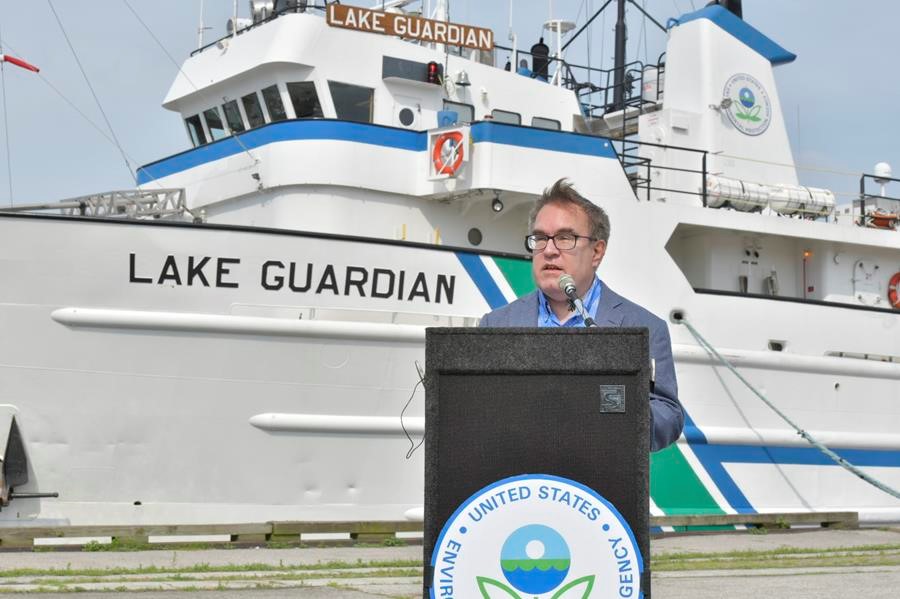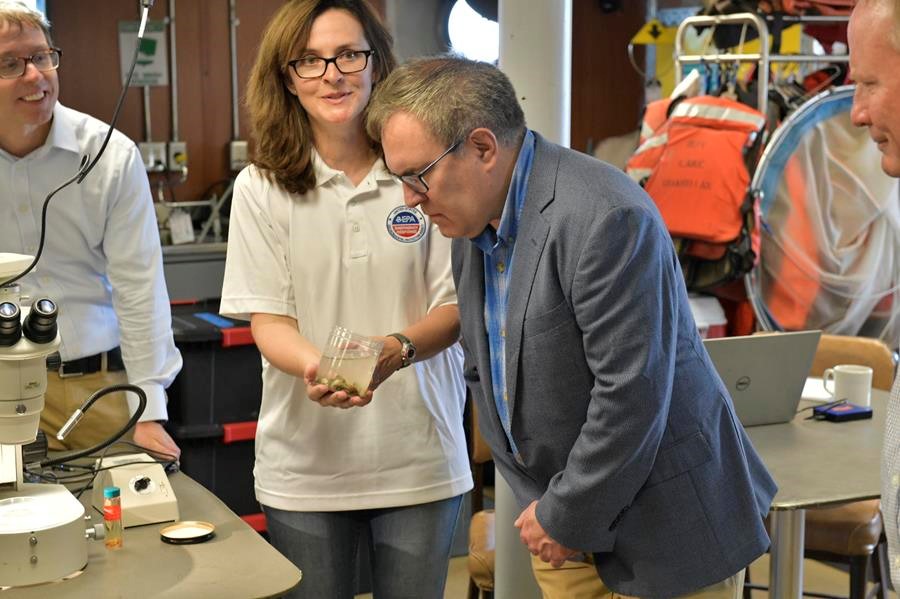EPA Administrator Andrew Wheeler Visits Cleveland, Announces Trash-Free Great Lakes Grant Program
For the first time, EPA will be requesting competitive applications for GLRI funding for trash-free water project grants in the Great Lakes
CLEVELAND (July 19, 2019) - Today, U.S. Environmental Protection Agency (EPA) Administrator Andrew Wheeler and Region 5 Administrator Cathy Stepp visited Cleveland to announce an upcoming new Great Lakes Restoration Initiative (GLRI) grant program specifically focused on funding trash-free water projects in the Great Lakes.
"Removing trash, litter and garbage - including plastics - from marine and freshwater environments is one of EPA's highest priorities," said EPA Administrator Andrew Wheeler. "The Trash-Free Great Lakes Grant Program is intended to fund efforts by communities and other applicants to clean up beaches and waterways so that the Great Lakes watershed will continue to provide habitat for wildlife and drinking water and recreation for tens of millions of people."
EPA expects to issue a Request for Applications (RFA) in October to solicit applications from eligible entities for GLRI grants. Once the RFA is released, applicants will have approximately 45 days to respond to the RFA. EPA anticipates that approximately $2 million in total funding will be available, with a maximum grant amount of $500,000 per project. Up to 12 grants could be awarded, including two larger scale projects and 10 smaller scale projects.
"This first-of-its-kind trash-focused grant program is yet another example of progress being made under the GLRI," said EPA Region 5 Administrator/Great Lakes National Program Manager Cathy Stepp. "Thanks to this funding, a number of Great Lakes communities can receive a meaningful assist in removing trash and litter from beaches, shorelines and waterways where cleanup projects are sorely needed."
Possible types of eligible projects include:
- Great Lakes beach and shoreline cleanup projects.
- Great Lakes harbor and river cleanup projects.
- Great Lakes trash and litter prevention and education projects.
Eligible entities will include state agencies, federally recognized tribes and tribal consortia, any agency or instrumentality of local governments, nonprofit organizations, interstate agencies, and colleges and universities.
More details will be made available once the RFA is released in October.
Background:
The GLRI was launched in 2010 to accelerate efforts to protect and restore the Great Lakes. Federal agencies have funded more than 4,700 projects totaling over $2.4 billion to address the most important Great Lakes priorities such as addressing agricultural nutrients and stormwater runoff, cleaning up highly-contaminated "Areas of Concern," combating invasive species and restoring habitat. Making GLRI funding available through a competitive application process is just one way that the GLRI achieves results.
EPA works directly with states, municipalities, and businesses through its Trash-Free Waters program to reduce litter, prevent trash from entering waterways, and capture trash that is already in our waters.
For more information on the GLRI, visit https://www.glri.us/
For more information, visit https://www.epa.gov/trash-free-waters


